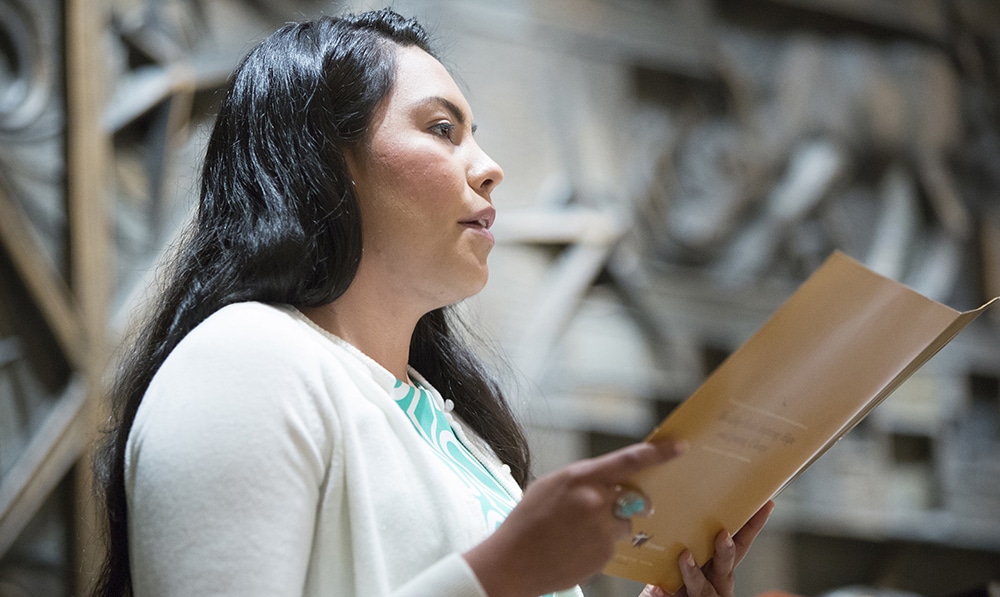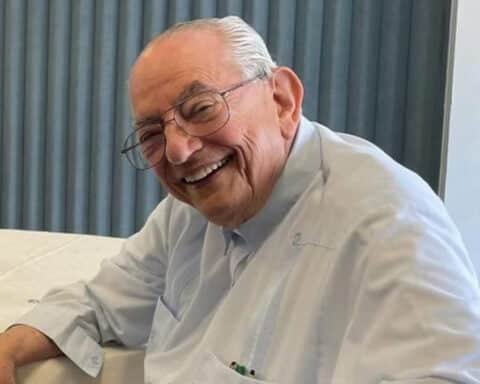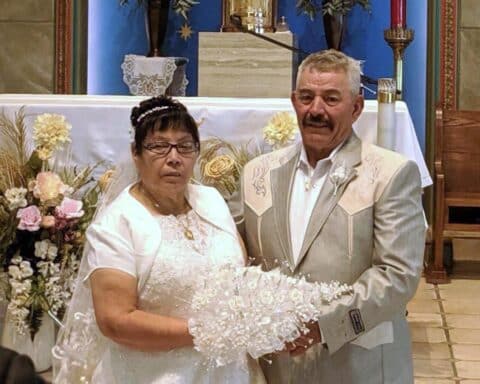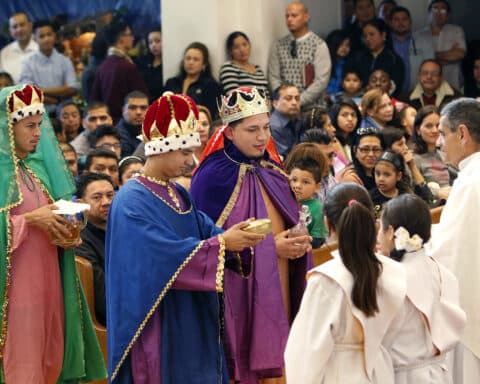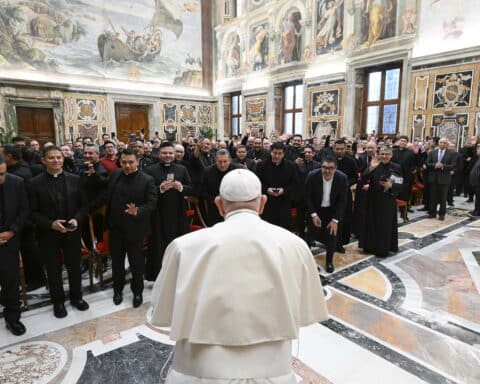Four Latino young adults who participated in a Georgetown University panel last week shared how the novel coronavirus pandemic had impacted them personally and their communities more broadly.
“Latinos love to be together, and it’s especially hard when we can’t gather in person. But there have been so many ways that we’ve been able to make new connections virtually,” said Adrianna Smith, a writer and founder of Emergent Seed, an organization that supports emerging musicians and writers in Washington, D.C.
On March 30, Smith said during the panel discussion — entitled “Life, Young Latinos, and COVID-19: Where Do We Go From Here?” — that COVID-19 in some ways has been a “clarifying time” for Latinos, artists and others to reflect on the importance of social connectivity.
Said Smith: “I think one of the important questions that we’re all asking ourselves is, what does community mean? Are we talking about our family? Are we talking about our neighborhood? Our city? Our Latin heritage? Our American heritage or nationality?”
Since the coronavirus began sweeping through the United States a year ago, COVID-19 has had a pervasive and disproportionate impact on the country’s diverse Latino community. Studies show that Hispanics, because of various socioeconomic factors, have been more likely than the general public to contract the virus, to be hospitalized and to die from COVID-19.
“And only 17% [of Latinos] are covered with medical insurance,” said Alma Caballero, the regional director of the consulting firm McLarty Associates’ Northern Latin America practice.
Caballero, who used to work in the Mexican embassy in Washington, D.C., said life, post-pandemic, will not return to “normal” with the flip of a switch. She said one lesson she learned over the past year is how interconnected humanity is.
“What happens in one place affects every place,” she said. “So we cannot only focus on our lives in silos.”
Sam Rocha, an author and musician who is an associate professor of educational studies at the University of British Columbia in Canada, said an uncle of his died from COVID-19. His last surviving grandmother also died from other health issues. Rocha said the pandemic prevented him from visiting his family in the Southwestern United States and in the Rio Grande Valley.
“I was born in Brownsville on the other side of Matamoros,” Rocha said. “And my people are one of those La Frontera Nos Cruzo types of people who have been in Texas and New Mexico for a long, long time.”
Bishop Mario Dorsonville, an auxiliary bishop in the Archdiocese of Washington, remarked how many of the Central American migrants he sees entering the United States often wear rosaries around their necks.
“They pray their rosaries, and they have faith — faith in the future,” said Bishop Dorsonville, who chairs the U.S. Conference of Catholic Bishops’ Committee on Migration. Bishop Dorsonville opened Tuesday’s panel with a prayer and introductory remarks.
“I guess the most important point is always to realize that a pandemic comes into our lives and even though we would like to see things the same way that they were before the pandemic, something has to change,” he said. “Something is going to continue to evolve. And it’s not going to be ever the same. However, the most important point is that Latino leaders have in their roots some structure that will continue to improve and will continue to face in today’s pandemic, some sense of hope, faith and love to project.”
Brenda Noriega, the mission educator-promoter for the Maryknoll Fathers and Brothers, told the Georgetown panel that she believes the pandemic has been “a defining moment” for her generation of young Latino leaders.
“It has forced us to not only live in the physical world but also in the digital world, and how to be effective, how to be able to continue to work and strengthen relationships, even if it’s through a laptop or even if it’s through a phone,” said Noriega, who serves on the International Youth Advisory Board for the Vatican Dicastery for Laity, Family and Life.
Noriega, who also participated in the V Encuentro and ate lunch with Pope Francis at World Youth Day in 2019, said her conversations with other remembers of the Vatican youth advisory board over the past year made her realize that people in some countries have suffered more losses than others.
“We Hispanic Latinos understand what discrimination, poverty and violence means. And we know how to build bridges,” she said. “And so I think that has given me hope in the last year — the unity of our community in the midst of the pandemic.”
Brian Fraga is a contributing editor for Our Sunday Visitor.

